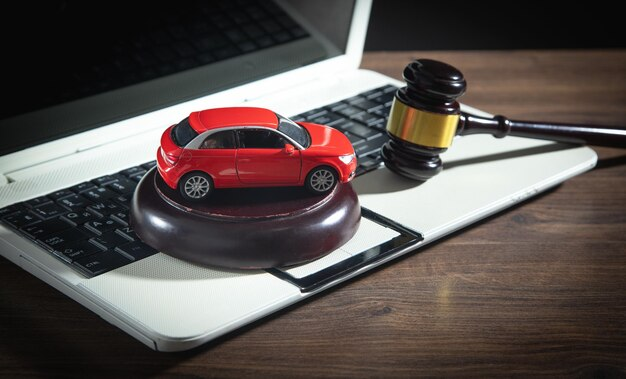In the bustling car market of Illinois, understanding the “Lemon Law” for used cars is crucial for both buyers and sellers. The term “what is the lemon law in Illinois for used cars” often pops up during conversations, especially when dealing with pre-owned vehicles. This article aims to shed light on the intricacies of the Lemon Law in Illinois for used cars, ensuring that you’re well-equipped with knowledge before making your next automotive purchase.
What Exactly is the Lemon Law in Illinois for Used Cars?

The Lemon Law in Illinois is a legal doctrine designed to protect consumers from chronically malfunctioning vehicles. When discussing “what is the lemon law in Illinois for used cars,” it’s important to note that this law specifically targets new vehicles. However, certain protections apply to used vehicles under different statutes, which are often colloquially referred to as the Lemon Law.
The Lemon Law: A Closer Look
When delving deeper into the Lemon Law in Illinois, it’s crucial to understand its scope, coverage, eligibility criteria, and the rights it grants to consumers.
Scope and Coverage
The official Lemon Law in Illinois primarily covers new vehicles. This means that if you purchase a brand-new car and it repeatedly experiences substantial defects or issues that impair its use, safety, or value, you may be eligible for recourse under the Lemon Law.
Eligibility Criteria
To qualify for protection under these laws, used cars usually need to meet certain criteria based on age, mileage, and the presence of a warranty. Here’s a breakdown of the eligibility criteria:
- Age of the Vehicle: Typically, used cars must be relatively new to be considered for protection. The exact age requirements can vary, but they often extend up to the first year or two of ownership.
- Mileage: The mileage of the used car is another crucial factor. Laws may require that the vehicle has not exceeded a certain mileage threshold, such as 12,000 miles, at the time of purchase to be eligible for protection.
- Warranty Status: The presence of a warranty, either from the manufacturer or the dealer, can also affect eligibility. In some cases, the vehicle must still be covered by a warranty to qualify for Lemon Law protections.
Consumer Rights
The Lemon Law and related statutes empower consumers with specific rights when they encounter persistent problems with their vehicles. These rights typically include:
- Right to Repairs: If your old vehicle is covered by the Lemon Law, the manufacturer or an authorized dealer can fix the repeated problems without charging you a dime. It is reasonable to expect the manufacturer or dealer to try fixing the problem multiple times.
- Right to Replacements: In certain cases where the vehicle’s issues cannot be adequately resolved, you may be entitled to a replacement vehicle of similar value and specifications.
- Right to Refunds: If neither repairs nor replacements prove effective, you may have the right to a refund, which typically includes the purchase price of the vehicle, minus an allowance for the usage you’ve had during your ownership.
- Legal Assistance: Consumers who believe their rights under the Lemon Law have been violated may also have the right to legal recourse, including seeking damages and attorney’s fees.
How Does the Lemon Law Apply to Used Cars in Illinois?
While “what is the lemon law in Illinois for used cars” implies a direct application, the reality is slightly different. Used cars fall under:
Illinois Used Car Warranty Law
The Illinois Used Car Warranty Law is a critical piece of legislation that directly addresses the protection of consumers when purchasing used cars. Here, we’ll break down the key components of this law:
| Aspect | Details |
| Applicability | Used cars sold by dealers are subject to this law, as opposed to those sold by private sellers. |
| Duration of Warranty | A minimum of 15 days or 500 miles, whichever comes first, is the requirement for dealers to provide a limited warranty on used cars. |
| Covered Components | For the warranty to be valid, it is imperative that certain parts are covered such as the engine and transmission. This guarantees their proper operation according to design specifications. |
| Repairs and Reimbursement | The dealer has a responsibility to fix any covered defect that occurs within the warranty period. If attempts at repairing it fail, then it may be necessary for the dealer to compensate the purchaser. |
| Disclosure Requirements | Prior to sale, dealers are obligated to reveal any known faults or concerns regarding the previously owned car in order to prevent purchasers from buying a faulty automobile without knowledge. |
The Illinois Used Car Warranty Law sets forth clear guidelines for dealers regarding the provision of warranties and disclosure of known issues. This ensures that buyers have a level of protection when acquiring used cars from dealerships.
Implied Warranties
In addition to the Illinois Used Car Warranty Law, consumers purchasing used cars benefit from implied warranties. These are unwritten guarantees that protect buyers when a used car doesn’t meet certain quality standards. There are two main types of implied warranties:
- Implied Warranty of Merchantability: This warranty implies that a used car sold by a dealer is fit for its ordinary purpose. In other words, the car should be in reasonably good working condition, considering its age and price.
- Implied Warranty of Fitness for a Particular Purpose: If a buyer informs the dealer that they have a particular use or purpose in mind for the used car, and the dealer agrees to it, an implied warranty of fitness for that specific purpose may apply. This means the car should be suitable for the stated purpose.
Key Features of the Illinois Used Car Warranty Law
Illinois has specific regulations in place to protect consumers when purchasing used cars. These regulations are designed to ensure that buyers receive a certain level of protection and peace of mind when making such a significant investment. Understanding the key features of the Illinois Used Car Warranty Law is essential for both consumers and dealerships to navigate the legal landscape effectively.
Duration of Warranty
One of the fundamental aspects of the Illinois Used Car Warranty Law is the determination of the warranty period, which can vary based on the car’s age and mileage. This duration is crucial because it sets the timeframe during which the buyer can seek warranty-related repairs from the dealership. The warranty period is typically calculated as follows:
| Car’s Age and Mileage | Warranty Duration |
| Less than 1 year old | 15,000 miles or 1 year, whichever comes first |
| 1 to 2 years old | 15,000 miles or 6 months, whichever comes first |
| Over 2 years old | No specific warranty requirements, but implied warranties may still apply |
It is vital for consumers to understand this aspect, as it directly affects their rights and the dealership’s obligations.
Coverage
The Illinois Used Car Warranty Law mandates coverage for major components of the vehicle. These major components primarily encompass essential parts that significantly impact the car’s functionality, safety, or value. Understanding the covered components is crucial for both buyers and sellers to avoid disputes. The key covered components typically include:
- Engine: The warranty extends to engine-related issues, as the engine is a critical part of the vehicle’s performance.
- Transmission: Transmission problems are also included in the warranty coverage since they can severely affect a car’s drivability.
- Drive Axle: The drive axle is responsible for transmitting power from the engine to the wheels, making it an essential covered component.
- Brakes: Brake system defects are included, as they are vital for the vehicle’s safety.
- Steering: Problems with the steering mechanism are covered to ensure the car’s drivability and safety.
Dealerships are obligated to repair defects related to these major components during the warranty period, provided the issues impair the vehicle’s use, safety, or value. It is essential for consumers to check the warranty documentation to understand the specific components covered and any exclusions that may apply.
Dealer Obligations
Illinois law imposes specific obligations on dealerships regarding warranty repairs. During the warranty period, dealers must fix any flaws that significantly reduce the vehicle’s usability, safety, or value. Here are the responsibilities:
- Repairs: Dealers must perform necessary repairs or provide a suitable replacement vehicle if a defect falls within the warranty coverage.
- Costs: Warranty-related repairs should be provided to the consumer at no cost, including parts and labor.
- Timeframe: Dealerships must complete warranty repairs within a reasonable timeframe to avoid prolonged inconveniences for the buyer.
It is crucial for consumers to document any defects, communicate with the dealership promptly, and keep records of all interactions and repair attempts. This documentation is essential if disputes arise regarding warranty repairs.
The Role of Implied Warranties
In addition to the explicit warranty provided under the Illinois Used Car Warranty Law, there are also implied warranties that apply to used car sales. These implied warranties are designed to protect buyers and ensure the vehicle’s fitness for its intended purpose. Two significant implied warranties are:
Merchantability
This warranty implies that the car is fit for general use. It ensures that the vehicle can perform its basic functions without significant defects. Key aspects of merchantability include:
- The car should be reasonably free from defects that affect its basic functionality.
- It should be suitable for ordinary driving purposes.
- The vehicle should pass without objection in the trade under the description given by the seller.
Fitness for a Particular Purpose
This warranty applies if a buyer relies on the dealer’s expertise to select a car for a specific need. In such cases:
- The dealer must be aware of the buyer’s particular purpose for the vehicle.
- The buyer must rely on the dealer’s skill or judgment when making the purchase.
- The car must be fit for the specific purpose conveyed to the dealer.
If a vehicle fails to meet these implied warranties, the buyer may have grounds for legal action or pursuing a refund or replacement from the dealership.
Understanding Your Rights and Remedies

Knowing “what is the lemon law in Illinois for used cars” means understanding your rights. If a used car turns out to be a lemon, you may be entitled to:
- Repairs: The dealer may be required to fix the car.
- Refund or Replacement: In certain cases, you could receive a refund or a replacement vehicle.
- Legal Recourse: If your rights are violated, legal action may be an option.
Conclusion
Understanding “what is the lemon law in Illinois for used cars” empowers consumers to make informed decisions and protects them against faulty vehicles. Whether you’re buying or selling a used car in Illinois, being aware of these laws is essential for a smooth and fair transaction. Remember, knowledge is power, especially in the complex world of used cars!
FAQ
Q: Does the Lemon Law in Illinois cover all used cars?
A: No, it primarily covers new cars, but used cars have some protection under other laws.
Q: What should I do if my used car is a lemon?
A: Contact the dealer for repairs under the warranty, and consider legal advice if necessary.
Q: How long is the warranty period for used cars in Illinois?
A: It varies based on the car’s age and mileage.
Q: Can I return my used car if it has problems?
A: It depends on the warranty and the nature of the issues.
Q: Where can I get more information about the Lemon Law in Illinois?
A: The Illinois Attorney General’s website is a reliable source.
